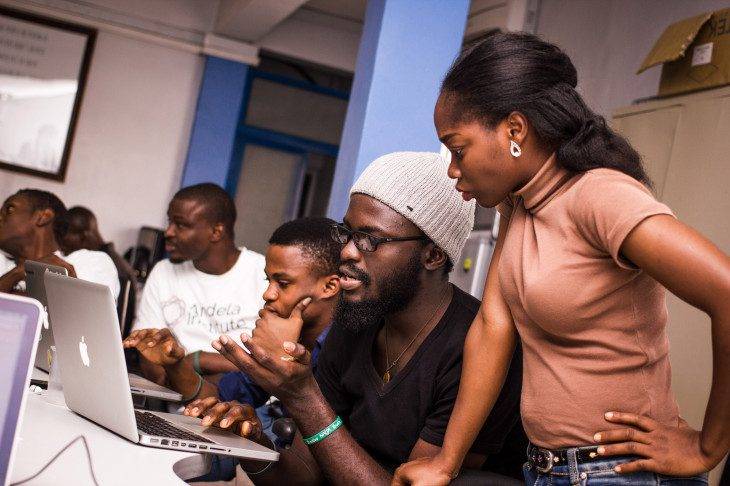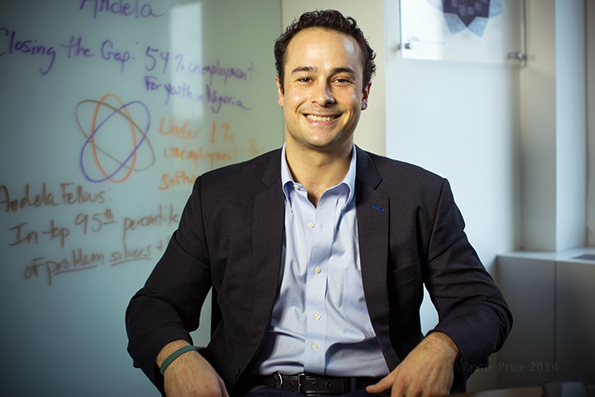The Andela Axe Shows It’s “Business First Before Anything Else” – But What’s Wrong With That?

Andela And The Heat
Since word got out that Andela — the breeding ground for budding software engineers in Africa — is closing its developer training programme and letting go of up to 420 junior developers on its roster, there’s been some uproar.
We all saw this thing coming, with the rate at which Devs were being taken in.
It’s one thing to take in people and another thing to provide the market for them.I have several questions as regards this @Andela lay-offs:
What metrics do they classify junior-senior Devs with?
..— Ada Nduka Oyom (@Kolokodess) September 17, 2019
Whatever happened to the Andela dream? The one of building a talent pipeline?
The one they sold to everyone?I’m pretty sure this option must have been on the table a while back before finally taking it up, why continue taking in more people and then suddenly lay them off?
— Ada Nduka Oyom (@Kolokodess) September 17, 2019
As it stands now, Andela is just another talent outsourcing BUSINESS off the block, nothing unique anymore.
Whatever happened to bridging the talent gap?
Wanting talents, getting them & then getting overwhelmed with them that you have to go back on your own words/promise?
— Ada Nduka Oyom (@Kolokodess) September 17, 2019
It’s no new thing that there’s a dearth of Senior Developers across the continent, YES. But what happens when companies reject them or stop giving them the opportunities to grow?
If the new goal is to take in solely Senior Devs, in a few years, those currently laid off would…
— Ada Nduka Oyom (@Kolokodess) September 17, 2019
…get better than their most preferred Senior Devs and what happens?
Think they would consider getting back in?
What happens to those who didn’t get laid off?
The “Senior Devs”
There’ll never be that trust again, wouldn’t be surprised to see more leaving as well.
— Ada Nduka Oyom (@Kolokodess) September 17, 2019
The company’s statement made it known it was time to pivot, being that times have changed and the market needs what the market needs.
Some of the bickerings around the matter has been centered around the idea that Andela may have let people down by selling a dream and then reneging on their word.
“Brilliance is evenly distributed, but opportunity is not”. Those words form the core of Andela’s mission — building a sort of talent pipeline that will connect brilliance and opportunity. And there are many who would feel that cutting 420 “talents” loose is not exactly in sync with that mission.

Source: TechCrunch
The feeling is that Andela is putting the talents it had sought to give opportunities to in jeopardy by casting them aside. One might even wonder how junior developers will ever become senior developers if they are disconnected from the opportunities that should get them there.
But the truth is, this was always going to happen and Andela shouldn’t get the stick for making what was a tough but necessary call. And the company is not exactly going back on its word of breeding the best engineering talents in Africa. If anything, that’s what it’s been doing for the last five years.
And even though it’s harsh on the junior developers, there is really no victor or vanquished — the biggest winners from all of these is actually the African tech ecosystem which is sure to benefit from the embarrassment of talent that has now been released into the community. The same talents Andela shaped for free and basically even paid for.
It’s Strictly Business – It’s Always About Business
Business is business and it is what it is. And many people seem to be forgetting that Andela is, first of all, a business. And businesses do what they do to make money — plenty of it.
Yes, Andela exists to link amazing talents with opportunities but there’s no hiding from the fact that making money was also part of the plan. And sometimes, people who run a business have to make the most unpalatable calls in the interest of the business.
“As the talent world has evolved, we have as well, and over the past few years, it’s become increasingly clear that the world needs what Andela provides: high-quality engineering-as-a-service. It’s also become clear, however, that the majority of the demand is for more experienced talent,” the company says.
Indeed, Andela’s CEO, Jeremy Johnson, told TechCrunch in a separate conversation that they had “misread the market now had more junior developers than they can place.”

Source: 3BL Media
This is quite understandable. Andela’s initial strategy was to identify high-potential talent on the African continent, train them in software development, and link them up with companies mainly in the U.S. who are looking for such skills.
Andela made revenue by tying up the developers to four-year contracts, during which the company took a fraction of the earnings.
With a roster of 1500 engineers who are working with more than 200 of the world’s most respected technology companies and earning USD 50 K and USD 120 K, it’s understandable how Andela’s revenue is touching USD 50 Mn this year.
Now, Here Comes The “But”
On the surface, USD 50 Mn in annual revenue does seem sizeable. But, quite frankly, Andela is a company that has raised up to USD 181 Mn in various funding rounds from several high-profile investors, including “The Mark Zuckerberg.”

Source: TechPoint
And, from a strictly business perspective, it should be making more than USD 50 Mn if it’s going to keep those investors happy, keep its business going, and grow to world-beater level. And the truth is that it can do all that, but not with its original business model.
Think of it this way — Andela has 1000+ developers across their hubs in Africa, up to 200 customers paying an average of USD 90 K per junior developer.
That means, assuming Andela has been able to place only about half of its developers (say 500), they will be earning around USD 45 Mn per annum.
But what if the other half of its roster is made up of mid-level to senior developers who rake in as much as USD USD 120 K? That would be an additional USD 60 Mn, bringing total revenue up to USD 105 Mn.
And this is why Andela began to directly recruit mid-level and senior-level developers into the company earlier this year. This group now represents more than 25 percent of Andela’s talent base.
Moreso, the talent pool of junior-level developers — something called ‘D0 engineers’ in Andela circles — is somewhat saturated. With training boot camps and programming classes popping up from basically everywhere on the continent these days, the supply of junior developers appear to have greatly exceeded the demand.

Source: benjamindada.com
Furthermore, Andela’s clients are mostly companies in the United States which are mostly on the lookout for senior talent these days. Things actually developed to the point where Andela had more junior developers on its roster than it knew what to do with.
So, what to do? Keep the juniors in without any ‘real’ work experience while paying them stipends or set them free? The latter was always the best choice, both financially and professionally. And Andela had to make that call.
Maybe it was a mistake to take in and train so many local entry-level developers in the first place — and the company has indeed owned up to the miscalculation — but they can’t be faulted for taking measures to fix their error. At the end of the day, it’s business. And, in truth, it’s not like they left the junior developers high and dry.
Which Way To Go For Those Affected By The Cutback?
First of all, Andela’s developer training programme in Rwanda will remain functional. The measure affected only the programmes in Nigeria, Kenya, and Uganda.
The continued running of the programme in Rwanda may have something to do with the fact that Andela’s programme in Rwanda is being subsidized by the government, though applicants outside Rwanda are welcome to apply.

For those that have been let go, Andela is pledging access to learning programs and job placement services.
The company also says it has “committed a range of financial and emotional resources to former employees,” while promising continued support for its alumni.
Also, Andela has partnered with innovation hubs including CcHUB in Nigeria, iHub in Kenya, and Innovation Village in Uganda to help connect the impacted developers with opportunities in their local ecosystems.
The company even claims to have already identified over 60 companies who are looking to hire top quality junior engineering talent.
Andela said the hubs will also allow the departing engineers to use their coworking spaces free of charge for the next three months. Actually, all these may not be enough but it could be a lot worse.

Going forward, the company wants to continue developing junior engineering talent at scale by investing in the Andela Learning Community; a programme that has benefitted more than 30,000 learners across Africa.
Well, it helps to think of it this way — Andela has just released over 400 brilliant people into the African tech ecosystem, and these are talents it developed for free.
From here on now, the possibilities are limitless. Once the furore subsides, all that will be is stardust.
Featured Image Courtesy: TechCabal